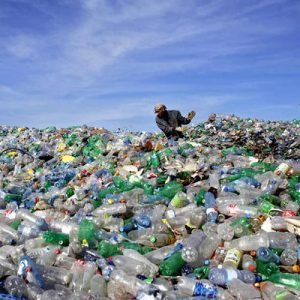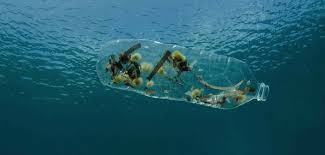Consumer goods giant Unilever has today (24 October) agreed a partnership with waste management Veolia, which will see the companies work together to develop innovative solutions to the plastic waste crisis. Through the partnership, the two companies will invest in recycling structure capacity and develop new, closed-loop processes and business models Under the new partnership, the firms will partner for a three-year period to develop emerging technologies that could create circular economy solutions for the world’s plastic waste streams. Starting in India and
The European Parliament has voted for a complete ban on a range of single-use plastics across the union in a bid to stop pollution of the oceans. MEPs backed a ban on plastic cutlery and plates, cotton buds, straws, drink-stirrers and balloon sticks. The proposal also calls for a reduction in single-use plastic for food and drink containers like plastic cups. One MEP said, if no action was taken, “by 2050 there will be more plastic than fish in the oceans”. The European
Small plastic pieces known as microplastics were found in stool samples of every participant in a small pilot study presented this week at a prestigious global gastroenterology conference. Researchers from the Environment Agency Austria and the Medical University of Vienna followed eight healthy volunteers from different parts of the world (Finland, Italy, Japan, the Netherlands, Poland, Russia, United Kingdom and Austria). The participants kept a diary of the food and drink they consumed for a week. Then, researchers tested their stool for 10
WHEN Gilbert Tan first heard that China was planning to ban the import of plastic waste into the country, he immediately got a bad feeling about how it was going to affect Malaysia and the recycling industry. “I had this fear that they would not follow the rules and regulations. This would mar the whole plastic recycling community,” he says. The managing director of Green Concept Technology Sdn Bhd, a company that recycles and manufactures plastic, was proven right by the recent
The world’s oceans are awash in plastic, and the problem is only getting worse. Each year, 8 million metric tons of plastic debris ends up in the oceans, and that’s on top of the 150 million metric tons already in marine environments. The debris ensnares seabirds, starves whales and infiltrates the entire marine food chain — including humans, too, when we eat seafood. Recently, there have been some high-profile efforts to remove plastic debris
As the war on plastics continues to gather pace, a string of corporates including Reebok and Lego have moved to incorporate bioplastics into their products in a shift away from fossil fuel-based materials. But with critics citing the ethical and environmental pitfalls of using farmland to grow plants for plastics rather than produce, Canadian startup Genecis has developed a method that allows food waste – rather than fresh crops – to be
The UK’s biggest crisp brand Walkers has unveiled plans to launch a nationwide crisp packet recycling scheme, following months of consumer protests against its hard-to-recycle packaging. Walkers currently produces more than 7,000 non-recyclable crisp packets every minute. image: Si Griffiths The company, which is a subsidiary of global food and beverage giant PepsiCo, has partnered with recycling firm TerraCycle to develop a method of recycling the packets. The method involves cleaning and shredding the metallised film, allowing it to be melted into small
Unilever’s chief R&D officer David Blanchard has outlined the company’s three-pillar approach to improving the recyclability of its product packaging, focusing on “less”, “better” and “no plastics” solutions. Unilever has committed to increasing the recycled plastic content in its packaging to at least 25% by 2025 In January 2017, corporate behemoth Unilever unveiled a new commitment to ensuring that all of its plastic packaging is fully reusable, recyclable or compostable by 2025. The commitment was built on a recognition that the global
A fungus that can “eat” plastic in weeks rather than years could help fight the growing plastic waste problem, according to a report by Kew Gardens. It can take decades or sometimes hundreds of years for some plastics to properly degrade. But a study on a waste site in Islamabad, Pakistan, isolated a fungus in the soil that quickly broke down chemical bonds. It took just two months for the fungi – Aspergillus tubingensis – to biodegrade a type of plastic called polyester
An ambitious project to clean up the ocean’s plastic pollution got underway over the weekend as members of The Ocean Cleanup project began towing their system out to sea. If it works as expected, they’ll try to take a bite out of the Great Pacific Garbage Patch — a huge collection of floating trash that’s three times the size of France, or about double the size of Texas. The Ocean Cleanup System 001 consists of a 2,000 foot (600










